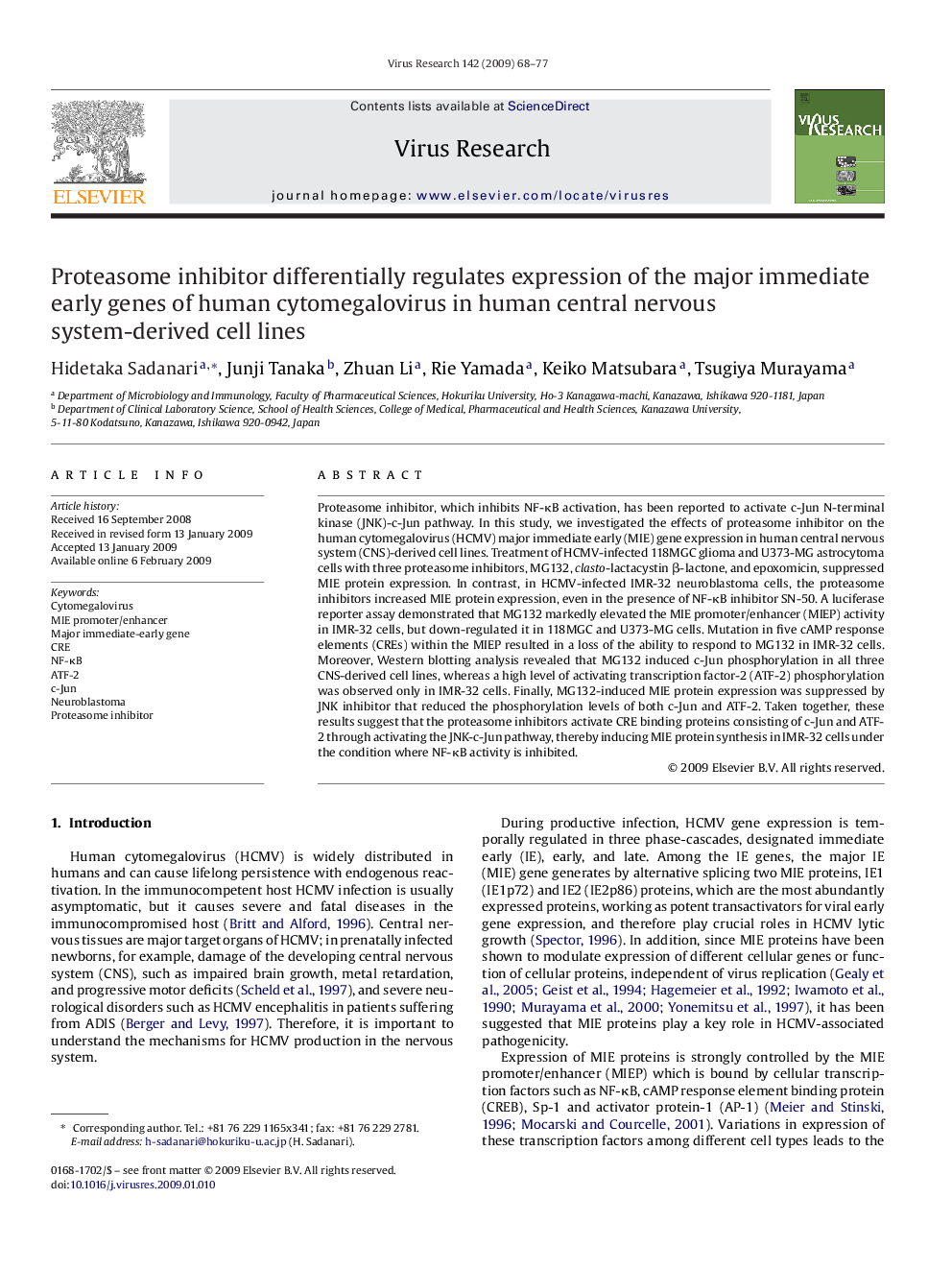| Article ID | Journal | Published Year | Pages | File Type |
|---|---|---|---|---|
| 3430063 | Virus Research | 2009 | 10 Pages |
Proteasome inhibitor, which inhibits NF-κB activation, has been reported to activate c-Jun N-terminal kinase (JNK)-c-Jun pathway. In this study, we investigated the effects of proteasome inhibitor on the human cytomegalovirus (HCMV) major immediate early (MIE) gene expression in human central nervous system (CNS)-derived cell lines. Treatment of HCMV-infected 118MGC glioma and U373-MG astrocytoma cells with three proteasome inhibitors, MG132, clasto-lactacystin β-lactone, and epoxomicin, suppressed MIE protein expression. In contrast, in HCMV-infected IMR-32 neuroblastoma cells, the proteasome inhibitors increased MIE protein expression, even in the presence of NF-κB inhibitor SN-50. A luciferase reporter assay demonstrated that MG132 markedly elevated the MIE promoter/enhancer (MIEP) activity in IMR-32 cells, but down-regulated it in 118MGC and U373-MG cells. Mutation in five cAMP response elements (CREs) within the MIEP resulted in a loss of the ability to respond to MG132 in IMR-32 cells. Moreover, Western blotting analysis revealed that MG132 induced c-Jun phosphorylation in all three CNS-derived cell lines, whereas a high level of activating transcription factor-2 (ATF-2) phosphorylation was observed only in IMR-32 cells. Finally, MG132-induced MIE protein expression was suppressed by JNK inhibitor that reduced the phosphorylation levels of both c-Jun and ATF-2. Taken together, these results suggest that the proteasome inhibitors activate CRE binding proteins consisting of c-Jun and ATF-2 through activating the JNK-c-Jun pathway, thereby inducing MIE protein synthesis in IMR-32 cells under the condition where NF-κB activity is inhibited.
